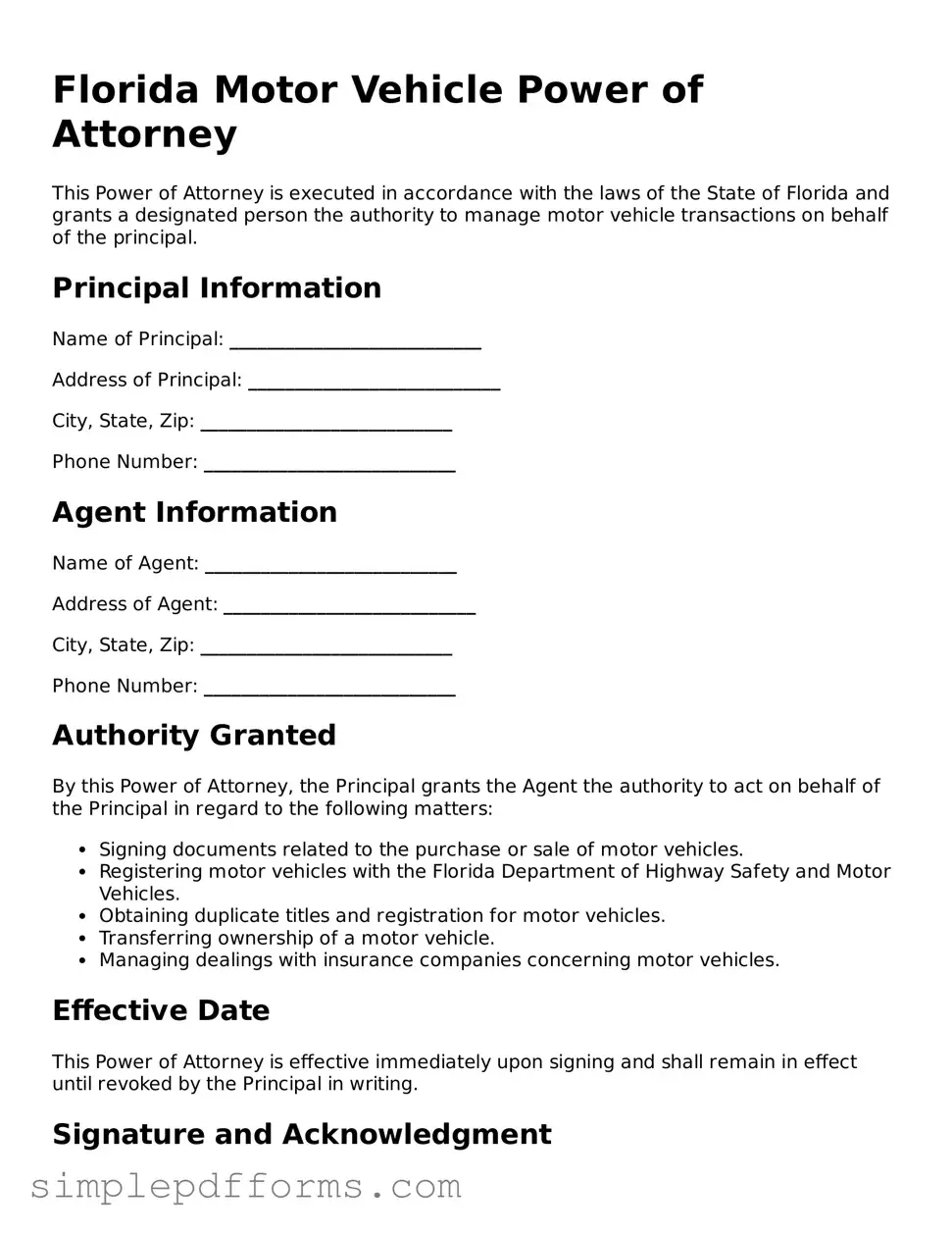Attorney-Verified Motor Vehicle Power of Attorney Document for Florida State
The Florida Motor Vehicle Power of Attorney form is a legal document that allows an individual to appoint another person to act on their behalf regarding motor vehicle transactions. This form is essential for anyone who needs to delegate authority for tasks such as transferring ownership, registering a vehicle, or handling related matters. Understanding its implications can help ensure that your vehicle-related affairs are managed smoothly and efficiently.
Open Motor Vehicle Power of Attorney Editor Now

Attorney-Verified Motor Vehicle Power of Attorney Document for Florida State
Open Motor Vehicle Power of Attorney Editor Now

Open Motor Vehicle Power of Attorney Editor Now
or
Get Motor Vehicle Power of Attorney PDF Form
Your form is waiting for completion
Complete Motor Vehicle Power of Attorney online in minutes with ease.